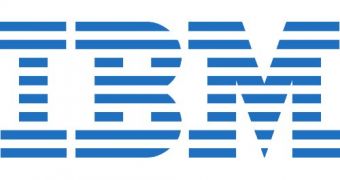Fusion-io scored big last year when it developed the ioDrive, a solid state drive solution that resembled RAM more than it did regular SSDs and that connected to the motherboard through the PCI Express x4 instead of SATA or PATA interfaces. As if the respective read and write speeds of 800MB/s and 680MB/s were not enough to clearly indicate the high performance delivered by the Fusion-io storage solution, the company again scored back in November, when it released the ioDrive Octal card. Eager to make use of this high-speed SSD storage solution, IBM licensed the ioMemory technology and plans to use it in its next lines of High IOPS PCIe solid-state drives.
"Working with Fusion-io, System x servers are delivering technology that optimizes these data-heavy workloads, allowing systems to not only handle the increases, but do so more efficiently," Robert Galush, vice president, IBM systems and technology group, said.
The new IBM High IOPS Adapter will drastically improve the application performance for database and server applications. Operations that would normally take hours to process could be completed in minutes when using the Flash Memory Tier (the server-deployed storage tier) for data-heavy graphics and 3D renderings instead of disk-based storage modules. The adapters will be used exclusively in IBM's System x servers.
"We are excited to collaborate with IBM and bring easily managed, server-deployed solid-state technology to more of the world’s system and database administrators. In addition to the data performance improvements and industry-leading reliability, IBM customers have the ability to significantly reduce capital equipment, floor space and power consumed by their data center operations, enabling innovation at all levels of the data center architecture," David Flynn, CTO and president of Fusion-io, said.
The IBM High IOPS Adapter will make use of Fusion’s Flashback protection and will be built with advanced error-correction algorithms for reliability. The total power consumption and cooling costs amount to only 1% of of standard spinning drives and the rack-space requirements may be reduced to zero, considering the fact that the High IOPS Adapters are directly deployed in the server. This means that System x servers will not only be highly power-efficient, but will also take up less space.
For now, Fusion-io's storage technology will only be used in IBM's server setups, although there is no rule stating that ioMemory-based SSDs won't be usable in consumer-oriented systems in the future.

 14 DAY TRIAL //
14 DAY TRIAL //